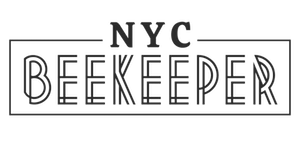Beekeeping can be an incredibly rewarding and enjoyable hobby, but it’s something that needs to be taken seriously, with a willingness to continue to learn and the ability to keep an open mind. Beekeeping techniques and methods evolve as much as the surrounding environment so any beekeeper must be willing to adapt in order to successfully and responsibly maintain a colony of bees.
This page is a living document and will be updated from time to time. This is not a complete guide to beekeeping but will serve as a jumping-off point for most. I will continue to add and update over time. It is recommended that anyone getting into beekeeping take a class or course, read the many books on the subject and do the appropriate research to have a working knowledge of honey bees. The information contained here will pertain mainly to New York State and New York City guidelines but may be able to be adapted to many locations. For specific rules and regulations for your area, please consult your local beekeeping association and city/state agencies.
New York City Guidelines
New York City is a very beekeeper-friendly city regarding the guidelines required. The small community of beekeepers in NYC also do a great job of self-policing and being good neighbors. It’s a very positive thing for the city and local communities. For this reason, anyone considering a hive should be ready to be a responsible beekeeper.
You can find out how to be a legal, registered beekeeper in NYC below. For the most up-to-date information, please visit the city website.
To Apply
- New Beekeepers must submit their notice form within 30 days of establishing his/her hives(s).
- The hive(s) being registered must first be registered with the state by completing the New York State Department of Agriculture and Markets’ Honey Bee Health Information form. HONEY BEE HEALTH INFORMATION FORM
- You must know your block and lot number. This information is available by searching on the Building Information System (BIS). BUILDINGS INFORMATION SYSTEM (BIS)
- There is no fee to register as a beekeeper.
Required Guidelines
- Beekeepers must maintain bee colonies in moveable-frame hives that are kept in sound and usable condition. The Department of Health and Mental Hygiene will inspect beehives upon complaint.
- Beekeepers must provide a constant and adequate water source for the bees.
- Beekeepers must locate hives on a site so that the movement of the bees does not become a nuisance.
- Beekeepers must be able to respond immediately to control bee swarms and to eliminate nuisance conditions.
- Beekeepers must update the registration information the NYC Department of Health has on record for their hive(s) within 10 days of any changes. On the Beekeeper Registration form, select “Revision”. BEEKEEPING REQUIREMENTS AND REGISTRATION FORM (PDF).
- For information about permits or licenses required to sell honey produced from hives located in New York City, call 311 and ask for Honey Selling.
For Current Beekeepers
All New York City beekeepers are required to register with the Department of Health and Mental Hygiene on a yearly basis, by May 31st. On top of the form please indicate “New” if registering for the first time or “Yearly” for the yearly registration.
BEEKEEPING REQUIREMENTS AND REGISTRATION FORM (PDF)
Education
Before you jump into beekeeping, take the time to find a class and/or course. Contact your local beekeepers’ association for upcoming classes or referrals to local apiaries. We provide beekeeping classes and courses at Astor Apiaries. Check out our Events Calendar for upcoming classes. Also, consider joining an association and befriending an experienced beekeeper or working with a beekeeping service for mentorship. Learning from the experience of others can save you a lot of money and headache in the long run.
You can also do a lot on your own. There are a number of beekeeping books you can find on Amazon. You can also learn from videos posted on YouTube however, you need to keep a critical eye and follow videos from reputable sources. Following higher education institutions, like the UoG Honey Bee Research Centre, are safer bets.
Continuing Education
There’s always something new to learn about honey bees. Once you’ve established a hive, it’s a great practice to take a refresher class every once in a while and keep up on the news in beekeeping. Consider a subscription to magazines like American Bee Journal or Bee Culture.
For those looking to take their skills to the next level, there are intermediate and advanced classes out there thought they are a bit harder to find. Many agricultural colleges and universities offer a Master Beekeeping Certificate. As a student of Cornell’s Master beekeeping Certificate, I can’t recommend them enough.
Finally, consider joining larger bee organizations like the Eastern Apicultural Society and making a trip to a bee conference. The world of beekeeping is vast and there are a ton of resources if you want to make this more than just a backyard hobby.
Hive Maintenance
In a dense urban setting, it is very important to minimize negative interactions with your bees and the general public. The following topics will help you maintain a healthy and friendly hive.
Proper Equipment
New York City, like many other cities, require hives with movable frames so the combs are able to be inspected. Most, if not all, beekeepers in the city use Langstroth Hives. These are easy to maneuver through tight alleyways or through roof hatches. They are also much easier to move upstairs than other types of hives like top-bar hives. I recommend 8-frame equipment for most hobbyists since the boxes are not as heavy as 10-frame boxes when full of honey.
Colony Temperament
Working with gentle bees not only makes living around them nicer for your neighbors, but it also makes beekeeping a more enjoyable experience for the keeper. Colonies should be regularly monitored for aggressive behavior and requeened when necessary.
Inspections
Colonies need to be checked regularly to ensure their health and to be able to act quickly if hive manipulation is needed. This can include treating disease/pests, adding supers for honey or just adding space for an active queen, among others. Between April and October, 1-2 inspections per month is usual, but there may be other times during the year where your hive(s) may need more or less visits.
The health of your colony also affects the hives in your area. Be responsible and don’t allow your hives to make your fellow beekeepers’ hives sick.
Hive Placement
Hives should be placed in a way to give safe access to the bees and beekeeper, while staying a safe distance from the public. Do not place hives near or against public areas or neighbors’ homes. Hives should be faced in a direction to cause the least amount of contact with people. In some cases where there’s a barrier like a wall or hedge, hives may be faced toward the barrier to keep the bees’ flight path away from people.
Rooftop hives need some extra considerations. Make sure the roof can support the additional weight of a full hive plus 2 adults at the very least. Hives must be able to sit level and be secured to the roof in case of heavy winds. Take all necessary precautions when on a roof, including keeping a safe distance from edges and care when scaling ladders. Ladders more than one-story are not recommended. Remember that every empty box you bring up, will likely be a lot heavier with bees and/or honey when you bring it down.
Contact another beekeeper if you have any doubts on your hive placement before you invest bees and equipment.
Providing Water
You must provide a water source near your hive(s), per NYC’s guidelines. It’s best to use something like a chicken waterer with sponges in the wells so the bees don’t drown.


